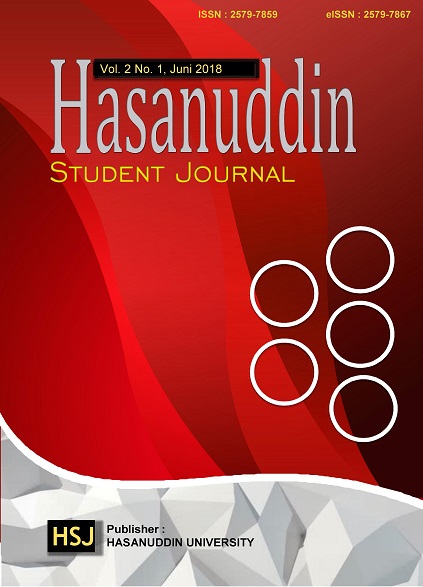The Effects of Avocado Extract (Persea americana mill), Papaya Seed (Carica papaya l.), and Celery (Apigium graveolens l.) Combination on The Skin and Hair of Mice (Rattus novergicus)
Abstract
Aging is a physiological process that causes changes in various body structures. One of them is hair follicle depigmentation that occurs due to the inability of the body to produce a substance that is melanin. By modern society, this is overcome by the development of hair synthetic dyes which are believed to be mutagenic and carcinogenic. Therefore, research from a combination of papaya seed extract, celery leaf and avocado fruit aims to produce natural hair dye which is also expected to give a good influence on the surrounding cells. This study used a true experimental design in vivo, using 4 treatment groups. The control group (P0) was only applied aquades, the treatment group1 (P1) was applied with a combination of extract with a concentration of 0.1%, the treatment group 2 (P2) was applied with a combination of 1% extract and the treatment group 3 (P3) smeared with a 10% extract combination. The preparation of a combination of extracts was done by maceration method. The results obtained from this study there are 3, namely (1) obtained changes in the color of animal hair try varying from dark brown to dark-brown depending on the concentration of substances given. (2) found the growth of hair follicles but not with melanin-producing cells of melanocytes. (3) the discovery of hyperkeratosis and hypergranulosis in tissue epidermis experimental animals due to regeneration of epithelial cells that continue to divide. From these results obtained the conclusion that the combination of three nutritious extracts to grow hair follicles and as a natural hair dyeReferences
Ames BN, kammen H, yamasaki E. 1975. Hair dyes are mutagenic: identification
of a variety of mutagenic ingridients. USA: Proc Nat Acad Sci
Diana w, wahini m. 2014. Penggunaan ekstrak buah alpukat dan madu sebagai bahan aktif hair tonic untuk rambut rontok. Surabaya: e- journal. Volume 03 nomer 01 tahun 2014.
Kuncari es, iskandarsyah, praptiwi. 2014. Uji iritasi dan aktivitas pertumbuhan rambut tikus putih: efek sediaan gel apigenin dan perasan herba seledri (apium graveolens l.). Jakarta: media litbangkes. Vol. 25 no. 1
Lubis, Desy Afianty. 2015. Natural Treatment dengan memanfaatkan Biji Pepaya sebagai Penghitam Rambut pada Usia Muda. Jurnal Pengabdian Kepada Masyarakat. Fakultas farmasi Universitas Indonesia
Maryam, R. Sitti, dkk. 2008. Mengenal usia Lanjut dan perawataanya. Jakarta: Salemba Medika.
Rizeki c, achir s. 2015. Pengaruh tingkat komposisi bubuk biji pepaya dan bubuk kulit manggis terhadap hasil pewarnaan rambut beruban. Surabaya: e- journal. Volume 04 nomer 01 tahun 2015.
Sinaga r, wangko s, kaseke mm. 2012. Peran melanosit pada proses uban. Manado: jurnal biomedik. Volume 4 nomor 3 tahun 2012.
Sumbayak em. 2005. Regenerasi epitel. Jakarta.
Telford, I.R. & C.F. Brigman. 1990. Introduction to functional histology. Harper & Row, Publishers, New York: xix + 598 hlm
Tranggono, R. I., Lathifah F. 2007. Buku pegangan ilmu pengetahuan kosmetik. Ed: Joshita Djajadi Sastra. Jakarta: Penerbit Pustaka Umum. Hal 6-7

